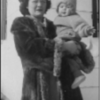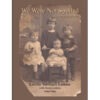The Memoir Writer’s Blog is our on-line magazine. It contains a collection of over 500 stories and articles to inspire you to be a better and more prolific writer and provides the technical knowledge and practice to make this happen.
You can make a success of your memoir writing.
We ought to know: we have worked with thousands of people and have been centrally involved in the production of hundreds of published memoirs.
We’re not going say it’s easy to write a memoir, but we are most definitely going to affirm that you can do it. Huge numbers of people write and finish their memoirs every year. Many have gotten their start by studying the Memoir Writer’s Blog. These people are, for the most part, just like you, people who started to write one day and persevered to the end.
I have learned so much from your blog. There is content for every issue and need a writer might have. Thank you for being so generous with your information.
—Mark Manzone
a memoir writer who is still at it!
Let the Memoir Writer’s Blog—which is our online magazine as well as our online memoir university—help you start, write, finish and publish your memoir as it has helped many others. Go from wannabe to published writer.
Just-in-time learning
The beauty of the Memoir Writer’s Blog is that you can access the information as you need it. Our blog is “just in time learning” at its best.
Before you know it, you will have a memoir in hand—a memoir that you will be proud to share.
If you want to know about what other services we provide besides the Memoir Writer’s Blog, click here.
NB: We also offer a Memoir Professional Blog for people who wish to teach, coach, edit or ghostwrite memoirs.
Memoir Writer’s Blog Posts

Point of View in a Memoir, Part 2
What is the importance of point of view in a memoir? In the previous post on point of view, I shared my challenge of trying to write material in a ghostwritten memoir that I knew to be true but which the subject was not forthcoming with. This is not “Truth” material. It is more the sort of reflection that a more intuitive, self-reflecting person might make to cast light on her/his life. The memoir in question is We Were Not Spoiled, a memoir I co-wrote with my mother Lucille Verreault Ledoux. [Free Membership required to read more. See below. ]
We'd love to have you access this content. It's in our members-only area, but you're in luck: becoming a member is easy and it's free.
Already a Member?
Not a Member Yet?

Point of View in a Memoir, Part 1
This is the first of several articles on point of view in a memoir.
My mother’s memoir, We Were not Spoiled, was a work of love that took me many years to bring to closure as I had other work to do to support myself that filled my days. Finally, she got to be quite a bit older, and beginning to feel urgency as many people do when in my position, I put the push on finishing her story.
I’ll be sharing with you in the next few blog entries my experience of writing someone else’s memoir. My mother was, after all, another person with her own agenda and experience. As the co-writer, my task was to listen to her and to write as close to her point of view as possible. How does one remain faithful to another’s point of view in a memoir? [Free Membership required to read more. See below. ]
We'd love to have you access this content. It's in our members-only area, but you're in luck: becoming a member is easy and it's free.
Already a Member?
Not a Member Yet?

Avoid Writing a Chronology: 4 Tips
Is writing a chronology of a life ever enough?
Dates and facts are necessary to life writing in the same way route numbers are necessary to maps. It’s not only that dates and facts provide interesting information but that they keep your readers on the right path as they make their way through your life story. So…
Writing a chronology is already a great contribution to your family story, but you can do so much more than just include the dates and facts. [Free Membership required to read more. See below. ]
We'd love to have you access this content. It's in our members-only area, but you're in luck: becoming a member is easy and it's free.
Already a Member?
Not a Member Yet?

Passive Vs Active Voice
Generally speaking, the passive voice of the verb (the subject has the action done to it) is weaker than the active voice (the subject does the action) in involving the reader in your story. That is crucial because as a memoir writer you are not sharing ideas but recreating life experiences to share.

Is Writing a Memoir Important?
Let’s start with a basic question: is writing a memoir important?
Okay, why do we tell so many stories? Stories fascinate us all our lives. As children, we loved to be told fairy tales and to hear, time after time, the tales our parents told us about what we did and said when we were babies, as well as the stories about their own childhoods. As soon as we were old enough, we told stories about ourselves for our parents and for our friends. [Free Membership required to read more. See below. ]
We'd love to have you access this content. It's in our members-only area, but you're in luck: becoming a member is easy and it's free.
Already a Member?
Not a Member Yet?

Do you need action in a memoir?
Action in a memoir is essential—even if internalized!
Action in a memoir usually happens in the usual place—outside the memoir narrator. That is easy to grasp: “The boy ran by.”
When you use flashback scenes in which you remember someone and what they did way back then—these are not interiorized actions, these are memories of actual actions.
What can be less easy to grasp is that action in a memoir can be internal to the character, happening in the character’s mind. [Free Membership required to read more. See below. ]
We'd love to have you access this content. It's in our members-only area, but you're in luck: becoming a member is easy and it's free.
Already a Member?
Not a Member Yet?

Your Memoir: an Arrest of Disorder
Each poem clarifies something. But then you’ve got to do it again. You can’t get ‘clarified’ to stay so: let you not think that. In a way, it’s like nothing more than blowing smoke rings. Making little poems encourages a man to see that there is shapeliness in the world. A poem is an arrest of disorder.
—Robert Frost, poet
Generating the arrest of disorder of life
When I read the quote above, I did not have to make much of a leap to sense that the words “An arrest of disorder” apply to the task you and I undertake when we write memoir. As the poet so is the memoir writer engaged in art making: the creation of meaning.
More than anything perhaps, we want an arrest of disorder. Disorder seems to be everywhere in life. And so, we take our raw material—the events of our lives and of the lives of the people who surround us—and endeavor to make meaning of it all. In short, we take up our mishmash of events, our disorder of memories, and attempt to make order—or, at the least, to create an arrest of disorder.
This rendering of order proves to be soothing. It is what we deeply wish to achieve in our lives—to have all the disparate and seemingly meaningless (or at least random) occurrences, wishes, pains somehow come together coherently, meaningfully. It all happened, we realize in an “A-ha!” moment, for some reason rather than by chance.
[Free Membership required to read more. See below. ]
We'd love to have you access this content. It's in our members-only area, but you're in luck: becoming a member is easy and it's free.
Already a Member?
Not a Member Yet?

The Role of Passion in Your Memoir
Understanding the role of passion in your memoir will help you to access the emotional side of your writing more easily and enable you to stay longer and more deeply in the memoir conversation. Understanding will add balance between your will to write and the passion that prompted you to write in the first place.
For a long time, passion—or or even mere feeling—was not thought to be necessary for good writing. As an extreme example, recall the works of John Dryden and of Alexander Pope. Not only were these writers not passionate in their writing, but were proud to have expunge all feelings from their texts. [Free Membership required to read more. See below. ]
We'd love to have you access this content. It's in our members-only area, but you're in luck: becoming a member is easy and it's free.
Already a Member?
Not a Member Yet?

A Memoir Writer Is an Artist
A memoir writer is an artist. If you are writing your lifestories, you have begun to do the work of the artist, to create as an artist creates. Although you may not think of yourself as a maker of art, you are engaging in the artist’s process of creating order out of chaotic reality.
To make art is to embark on a journey of discovery that leads inevitably, even if in a meandering way, to a greater understanding of yourself and your life. When you practice an art regularly and learn to do it well, your emotions and ideas are disciplined through working within the form of that art and they are transformed. This process of creation has the power to teach you how to live your life— and it will continue to provide insights as long as you pursue your art honestly and deeply. This, too, is the work of memoir writing. [Free Membership required to read more. See below. ]
